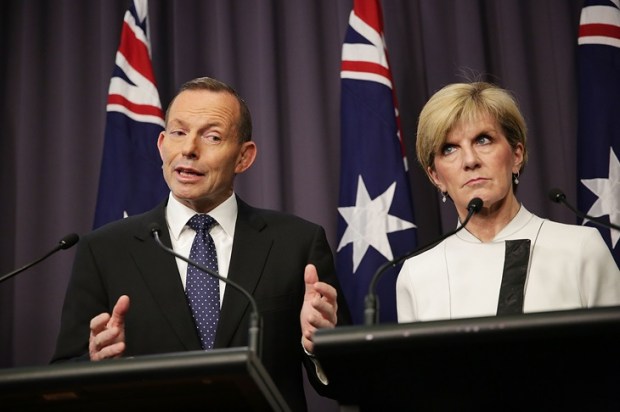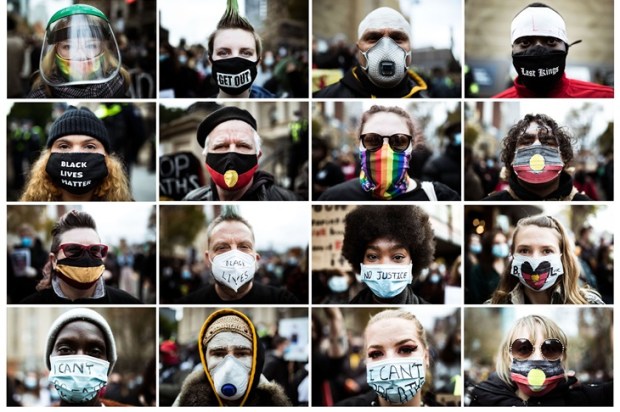In early 2021, Microsoft’s Bill Gates engaged in various speaking events for his book How to Avoid a Climate Disaster. It explores what he calls the ‘hard to solve’ problems of carbon emissions, including agriculture.
MIT Technology Review interviewed Gates at the time, noting:
‘Gates is an investor either personally or through Breakthrough Energy Ventures in several of the companies he mentions below, including Beyond Meats, Carbon Engineering, Impossible Foods, Memphis Meats, and Pivot Bio.’
During the interview, Gates goes on to talk about the agricultural ‘technical advancements’ being performed by companies he has invested in, including bioengineering projects to manipulate seeds and fertiliser and fussing around with feed given to animals.
After this he admits that synthetic meat is part of the road map to lower emissions.
‘I’ve said I can actually see a path [to 1 percent synthetic meat globally]. But you’re right that saying to people, “You can’t have cows anymore…” – talk about a politically unpopular thing to say.’
When asked about whether lab grown meat would have to be employed as the replacement, Gates replied:
‘For Africa and other poor countries, we’ll have to use animal genetics to drastically raise the amount of beef per emissions for them. Weirdly, the US livestock, because they’re so productive, the emissions per pound of beef are dramatically less than emissions per pound in Africa … so no, I don’t think the poorest 80 countries will be eating synthetic meat. I do think all rich countries should move to 100 per cent synthetic beef.’
Did you catch that? Poor countries can keep eating real meat, but rich countries – by which he means Western countries – should be eating meat grown in a test tube.
‘Eventually that green premium is modest enough that you can sort of change the [behaviour of] people or use regulation to totally shift demand.’
Regulation means artificial government prices, sale restrictions, taxes, and increases in costs to farmers making real food unprofitable. So far, beef, chicken, quail, and eggs – one of the most nutritionally important foods for humans – are on the verge of being replaced.
In July of 2023, one of Gates’ investment synthetic meat companies received USDA approval. California-based UPSIDE Foods (Memphis Meats) has not announced when their products will start popping up, but they did announce a competition to be the first to eat their cultivated chicken. They were one of several synthetic meat companies that received approval in recent years from the FDA and USDA, indicating that America – the fast food nation – is prepared to try out lab-grown food.
Notice the interesting re-branding of synthetic meat and lab-grown meat to ‘cultivated meat’. It’s a marketing attempt to make the product sound more ‘natural’ even though the ‘meat’ is grown in vats. Manufacturers (not farmers) note that it takes lots more energy to grow meat artificially instead of allowing a cow to graze in a paddock for a while – but don’t worry, this can always be ‘offset’, they claim. They then throw in the ‘safety’ argument for good measure, insisting that unlike ‘risky’ animals, these clumps of cultivated cells are free from bacteria.
Not everyone is happy. The CEO of the National Cattlemen’s Beef Association spoke out saying that: ‘What Gates fails to disclose is that the reality of fake meat is far different from the utopian fantasy he is selling.’ He adds that desires to manipulate the economy and (particularly the poor) population into eating it was ‘elitist thinking’. His article is brutal. He finishes by saying:
‘The companies that manufacture fake meat products want you to believe they have solutions when what they truly offer is an empty sales pitch and an inferior product. Fake meat, and those who sell it, aren’t interested in solving climate problems. Instead, Gates, and the companies that promote fake meat, are simply another group of corporate interests chasing profitability.’
Personally, I’d rather eat vegans than clumps of cells grown in a lab, bathed in chemicals, and reared like Frankenstein’s least interesting experiment.
The US might be salivating at the thought of licking Petri dishes, but Italy has put up a big ‘bugger-off’ barrier to synthetic meat this week after the Senate passed a bill to ban the production and marketing of synthetic meat and stock feed. It will now make its way through to the next stage.
93 voted in favour, with 28 against and 33 abstaining.
What’s more astonishing is the public demand to ban synthetic meat, with over 2 million Italians signing a petition in support of the bill. Across Italy, regions and municipalities were almost all voting the same way – all but shouting at Parliament to act.
Italy has a reputation for quality, natural, and traditional food. The last thing its people want, according to reports, is billion-dollar corporations moving in on the produce industry under the banner of ‘climate change’.
The bans, if carried all the way through to law, would include a € 60,000 fine for anyone making or selling these synthetic products.
‘Italy, which is the world leader in food quality and safety, has the responsibility of leading the way in health and environmental protection policies’ says the president of Coldiretti Ettore Prandini, reiterating the ‘precautionary principle’ that animates the design of law. Therefore, ‘the challenge that Coldiretti launches to the European institutions is that the products in the laboratory in the authorisation processes are not equated to food but rather to products of a pharmaceutical nature’, concludes Prandini , launching a ‘challenge’ to the ‘European institutions’ so that ‘the products in the laboratory in the authorisation processes are not equated to food but rather to products of a pharmaceutical nature’.
The bill covers all products – beef, chicken, eggs, feed, milk, fish – if it’s birthed into this world by a person in a white coat, it’s off the menu in Italy.
Italy’s Prime Minister, Giorgia Meloni voiced, her support for the bill and the protection it affords both farmers and consumers.
‘We could not but celebrate with our farmers a measure that places Italy at the forefront, not only on the issue of defending excellence, a matter that is particularly important to us, but also on the issue of consumer protection.’
Italy is a conservative nation that has learned the virtue of saying ‘no’ and the value of its traditional culture.
Australia is still wrestling with its Woke demons. The ABC reported in late June of this year that we could be seeing this lab-grown meat packed into our shelves by 2024 with Food Standards Australia currently reviewing the product.
The CEO of one Australian meat company said: ‘There’s been a lot of talk around cultivated or lab-grown meat for a number of years now, but this will see products finally come to market for the consumer. I just think it’s a massive milestone for the industry.’
Another CEO added, ‘My family would be very happy to incorporate [synthetic meat] into our diets as an additional, new choice that offers things traditional meat can’t.’
It appears modern society is wrestling with two mutually exclusive philosophies: those who see the rise of environmentalism as a call to ‘return to the wild’ and eat natural food with as little processing as possible. Then there are others gravitating toward food almost entirely developed and grown in laboratories by chemical companies in order to ‘save the planet’.
No doubt the ‘peasants’ won’t be happy if governments attempt to use economic and legal measures to harm farmers and rob wealthy nations of fresh, natural food, in order to meet 2050 climate goals that seem as artificial as the food.
Flat White is written and edited by Alexandra Marshall.
Got something to add? Join the discussion and comment below.
Get 10 issues for just $10
Subscribe to The Spectator Australia today for the next 10 magazine issues, plus full online access, for just $10.


























Comments
Don't miss out
Join the conversation with other Spectator Australia readers. Subscribe to leave a comment.
SUBSCRIBEAlready a subscriber? Log in